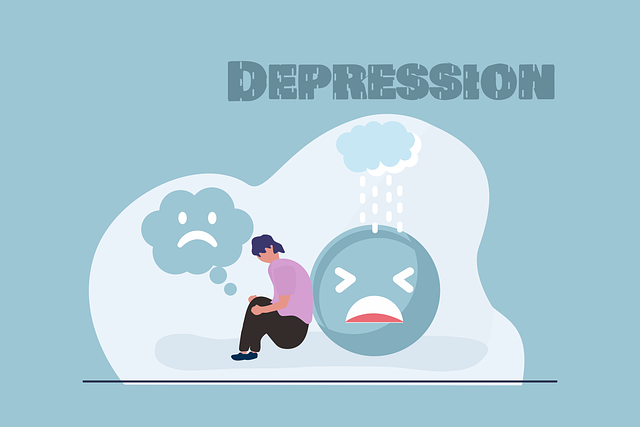Greenwood Village Spanish Speaking Therapy focuses on culturally sensitive mental healthcare, bridging the gap for the local Latinx community. By integrating language proficiency with a deep understanding of diverse cultural beliefs, they offer tailored treatment and foster trust through linguistically appropriate care. The program equips professionals with strategies like interpreting services, bilingual therapists, and cultural education to provide competent care, promoting holistic well-being for all backgrounds.
Cultural sensitivity is a cornerstone of modern mental healthcare, ensuring equitable and effective treatment for diverse patient populations. This article explores the critical importance of cultural sensitivity in mental health practices, highlighting strategies for providers to navigate complex cultural nuances. We showcase the innovative approach of Greenwood Village Spanish Speaking Therapy, who bridge linguistic gaps, offering culturally competent care. Through practical tips and real-world examples, this guide equips mental health professionals with tools to foster inclusive environments, ultimately enhancing patient outcomes.
- Understanding Cultural Sensitivity: Why It Matters in Mental Healthcare
- Greenwood Village Spanish Speaking Therapy: Bridging the Gap
- Practical Strategies for Culturally Competent Care
Understanding Cultural Sensitivity: Why It Matters in Mental Healthcare

In the diverse tapestry of mental healthcare, cultural sensitivity is more than a favorable trait—it’s an indispensable element ensuring effective treatment and support for all individuals, regardless of their background. This concept goes beyond simply providing services in a patient’s native language; it involves a deep understanding of cultural nuances, beliefs, and practices that shape one’s mental health experiences and expressions. For instance, what may be considered a sign of distress in one culture could be a normal behavior in another.
At Greenwood Village Spanish Speaking Therapy, we recognize that cultural sensitivity is key to fostering trust, building rapport, and facilitating meaningful healing. Our approach integrates inner strength development and mental wellness journaling exercise guidance tailored to diverse cultural perspectives. We also emphasize the crucial aspect of risk assessment for mental health professionals, ensuring they are equipped with the knowledge and skills to navigate complex cultural landscapes sensitively and competently.
Greenwood Village Spanish Speaking Therapy: Bridging the Gap

In Greenwood Village, Spanish speaking therapy has emerged as a vital service, addressing a significant gap in mental healthcare accessibility for the local Latinx community. This initiative recognizes and respects the cultural diversity within this demographic, understanding that effective treatment must be tailored to individual needs and linguistic preferences. By offering therapy specifically catering to Spanish speakers, Greenwood Village breaks down barriers, fostering trust and openness among patients who may have previously faced challenges communicating their struggles due to language differences.
The program not only facilitates communication but also empowers individuals to develop inner strength and emotional intelligence, essential tools for managing stress and navigating life’s challenges. Through interactive sessions and workshops organized by the Stress Management Workshops Organization, participants gain valuable skills in self-care, coping strategies, and building resilience. This holistic approach ensures that patients not only receive linguistically appropriate care but also engage in activities that nurture their overall well-being.
Practical Strategies for Culturally Competent Care

In providing culturally competent care, mental healthcare practitioners must embrace a range of practical strategies. One key approach involves learning and incorporating the patient’s primary language, such as Spanish, as spoken in Greenwood Village. This can be achieved through interpreting services or, where feasible, hiring bilingual therapists. The goal is to ensure clear communication and build rapport, fostering an environment where individuals feel understood and comfortable discussing sensitive topics.
Additionally, practitioners should educate themselves on the patient’s cultural values, beliefs, and norms related to mental health. This knowledge can shape therapeutic techniques, helping professionals tailor their approach while respecting traditional healing practices. Incorporating culturally relevant activities or interventions, like those that address familial connections or community support networks, can significantly enhance emotional well-being promotion techniques. Crisis intervention guidance should also be informed by cultural sensitivity, ensuring responses are appropriate and respectful of diverse backgrounds. Emotional intelligence plays a pivotal role in navigating these interactions, allowing healthcare providers to respond thoughtfully to the unique needs of every patient.
Mental healthcare practices that incorporate cultural sensitivity, such as those offered by Greenwood Village Spanish Speaking Therapy, are essential in providing equitable care. By understanding and respecting diverse cultural backgrounds, therapists can create inclusive environments that foster trust and improve outcomes for all clients. Practical strategies outlined in this article offer a roadmap to enhancing cultural competency, ensuring that every individual receives the highest quality of mental health support tailored to their unique needs.










